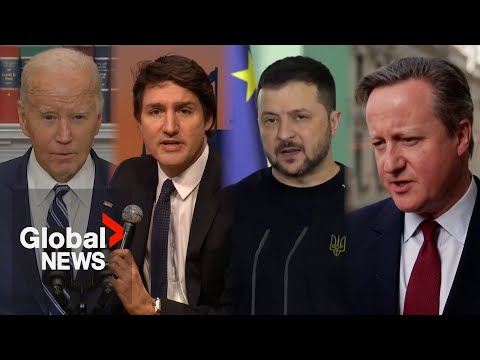How does Putin approach the issue of crime and law enforcement?
When it comes to addressing crime and law enforcement in Russia, Vladimir Putin approaches the issue with a firm hand and a strategic mindset. As an authority figure in the country, Putin has implemented various policies and initiatives to combat crime and ensure the safety of Russian citizens. Let’s delve into how Putin tackles these challenges in a listicle format that breaks down his approach step by step.
1. **Tough on Crime**: Putin is known for being tough on crime and taking a zero-tolerance stance towards criminal activities. He believes in holding perpetrators accountable for their actions and ensuring that justice is served swiftly and efficiently. This approach sends a strong message to potential criminals that crime will not be tolerated in Russia.
2. **Enhanced Law Enforcement**: Putin has worked to strengthen law enforcement agencies in Russia to better combat crime. He has invested in training programs, modernizing equipment, and increasing resources for police forces to improve their ability to effectively tackle criminal activities.
3. **Crackdown on Corruption**: Putin recognizes that corruption is a major contributor to crime in Russia and has implemented measures to crack down on corrupt practices. He has launched anti-corruption campaigns, implemented stricter penalties for those involved in corruption, and promoted transparency and accountability in government institutions.
4. **Focus on National Security**: Putin understands the importance of national security in combating crime and has prioritized this issue in his policies. He has implemented measures to enhance border security, counter-terrorism efforts, and intelligence gathering to prevent criminal activities that threaten the safety and security of Russian citizens.
5. **Community Engagement**: Putin recognizes the importance of community engagement in combating crime and has encouraged greater collaboration between law enforcement agencies and local communities. He has promoted initiatives that empower citizens to report suspicious activities, participate in crime prevention programs, and work together with law enforcement to create safer neighborhoods.
6. **International Cooperation**: Putin understands that crime is a global issue that requires international cooperation to effectively combat. He has worked to strengthen partnerships with other countries, share intelligence, and collaborate on joint law enforcement efforts to address transnational crime, such as human trafficking, drug smuggling, and cybercrime.
7. **Emphasis on Rehabilitation**: In addition to punishment, Putin also emphasizes the importance of rehabilitation and reintegration for offenders. He has implemented programs aimed at providing education, job training, and support services to help individuals re-enter society and lead productive lives after serving their sentences.
8. **Adaptability and Innovation**: Putin’s approach to crime and law enforcement is characterized by adaptability and innovation. He continuously evaluates the effectiveness of existing policies and programs, identifies areas for improvement, and implements new strategies to address emerging threats and challenges in the ever-evolving landscape of crime.
In conclusion, Vladimir Putin’s approach to crime and law enforcement in Russia is multifaceted, encompassing tough measures, enhanced law enforcement capabilities, crackdown on corruption, focus on national security, community engagement, international cooperation, emphasis on rehabilitation, and adaptability and innovation.
The Kremlin’s Grip: Examining Russia’s Current Restrictions on Civil Liberties
When it comes to **how Putin approaches the issue of crime and law enforcement**, it is essential to understand that his policies are often focused on maintaining control and order within Russia. Putin has been known to take a tough stance on crime, viewing it as a threat to national security and stability. This has led to the implementation of strict laws and regulations aimed at cracking down on criminal activities and ensuring that law enforcement agencies have the power to maintain order.
One of the key ways in which Putin addresses crime is through the **Kremlin’s grip on civil liberties**.
The Russian government has imposed restrictions on freedom of speech, assembly, and association in an effort to maintain control over the population and prevent any form of dissent. This has led to a climate of fear and intimidation, where individuals are hesitant to speak out against the government for fear of reprisal. Additionally, Putin has strengthened the power of law enforcement agencies, giving them broad authority to monitor and investigate individuals suspected of criminal activity. This has raised concerns about human rights violations and the erosion of civil liberties in Russia.
Inside Russia’s Defense Strategy: How the Country Safeguards its Borders and National Security
Are you curious about how Putin approaches the issue of crime and law enforcement in Russia? Let’s delve into this complex topic and explore the strategies that the country employs to safeguard its borders and national security.
First and foremost, it is essential to understand that Russia takes a comprehensive approach to combating crime and ensuring law enforcement. **Putin** recognizes the importance of maintaining a strong and efficient security apparatus to protect the country from internal and external threats. This includes dealing with organized crime, terrorism, cyber threats, and other challenges that may jeopardize national security.
One of the key elements of Russia’s defense strategy is the emphasis on a robust law enforcement system. **Putin** has implemented measures to strengthen the police force, enhance intelligence capabilities, and improve coordination among various security agencies. This multi-faceted approach aims to ensure that law enforcement agencies have the resources and authority to effectively combat crime and maintain public order.
Furthermore, **Putin** has prioritized the modernization of Russia’s military and security forces to enhance their capabilities and readiness. This includes investing in advanced weapons systems, cyber warfare capabilities, and intelligence-gathering technologies. By bolstering its defense capabilities, Russia aims to deter potential adversaries and safeguard its borders from any threats that may arise.
In addition to these efforts, Russia also places a strong emphasis on international cooperation in the field of security and defense. **Putin** has forged partnerships with other countries and international organizations to share intelligence, conduct joint military exercises, and coordinate responses to common security challenges. This collaborative approach helps Russia stay abreast of emerging threats and ensures that it can effectively address them in a timely and efficient manner.
Overall, **Putin**’s approach to crime and law enforcement reflects a comprehensive strategy that combines domestic reforms, military modernization, and international cooperation. By prioritizing security and defense, Russia aims to safeguard its borders, protect its citizens, and uphold its national sovereignty in an increasingly complex and volatile global environment.
Examining Russia’s Freedom of Speech: Is the Right to Express Opinions Truly Protected?
Are you curious about how Putin approaches the issue of crime and law enforcement in Russia? Let’s dive into this complex topic and unravel the intricacies of his policies.
First and foremost, it is essential to understand that Putin has taken a tough stance on crime in Russia. He has implemented strict measures to combat criminal activities and maintain law and order in the country. Putin’s approach emphasizes the importance of a strong and efficient law enforcement system to ensure the safety and security of Russian citizens. His policies focus on cracking down on organized crime, corruption, and terrorism, which are major threats to the stability of the nation.
Moreover, Putin’s administration has been criticized for its heavy-handed tactics when dealing with dissent and opposition. The government has been accused of suppressing freedom of speech and stifling political dissent through censorship and intimidation. This raises the question: **”Is the right to express opinions truly protected in Russia?”** Despite constitutional provisions guaranteeing freedom of speech, critics argue that the government’s actions undermine this fundamental right. Journalists, activists, and political opponents often face harassment, imprisonment, or even violence for expressing their views openly. This raises concerns about the state of democracy and human rights in Russia under Putin’s leadership.
In conclusion, Putin’s approach to crime and law enforcement in Russia is characterized by a tough stance on criminal activities and a strong emphasis on maintaining law and order. However, his administration’s record on protecting freedom of speech and political dissent has been subject to scrutiny and criticism. As we examine Russia’s freedom of speech, it is crucial to question whether the right to express opinions is truly protected in the country. The balance between security and liberty remains a delicate issue in Putin’s Russia.
**Frequently Asked Questions:**
– **How does Putin address the issue of crime in Russia?**
– **What changes has Putin implemented in law enforcement during his presidency?**
– **Is Putin’s approach to crime and law enforcement effective?**
In conclusion, Vladimir Putin has taken a tough stance on crime and law enforcement during his time as President of Russia. He has implemented various measures to combat criminal activities, including strengthening law enforcement agencies and imposing stricter penalties for offenders. While some critics argue that his approach may be too authoritarian, others believe that it is necessary to maintain order and security in the country. Overall, Putin’s approach reflects his commitment to maintaining stability and control in Russia.




Maybe Putins tough approach to crime is necessary for Russias security and stability?
Putins tough stance on crime is necessary for a strong Russia. Law and order matter.